The Saint of the Day
 |
 |
 |
 |
 |
 |
 |
St. Dominic Savio - March 9
Biographical selection (by St. John Bosco):
It is common in youth to often change one's aims and purposes; today a young man practices a virtue eminently and tomorrow he does the exact opposite. From this it can be seen that if that youth does not receive close guidance from a superior, a formation that could have been brilliant and happy ends with very bad results.
This did not happen with our Dominic with regard to the many virtues that burgeoned and grew in him in the different phases of life. They continually increased in a marvelous way, flourishing and growing all together without one impairing another.
His way of living was the common way of observing the regulations of the Oratory [of St. John Bosco]. He dedicated himself eagerly to study, ardently fulfilled all his duties and listened with particular attention to the sermons. He always had present before him that the word of God is the guide for man and the road to Heaven and, therefore, he always remembered the maxims he heard in sermons. In this way, from the common life he quickly passed to an extraordinary life.
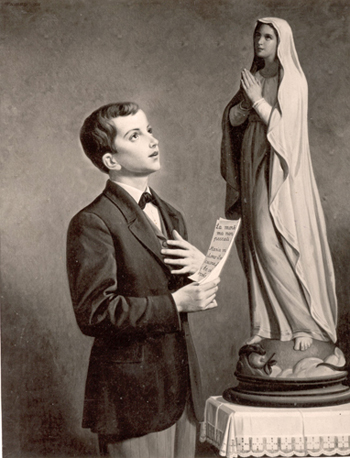 One day in 1854 Dominic came to see me on the eve of the beginning of the Immaculate Conception novena. We had this conversation:
One day in 1854 Dominic came to see me on the eve of the beginning of the Immaculate Conception novena. We had this conversation:
Dominic Savio - "I know that the Virgin grants a great number of graces to those who say her novenas."
John Bosco - "And what do you want to ask in this novena in honor of the Virgin?"
D.S. - "I would like to ask for many things."
J.B. - "What, for example?"
D.S. - "Above all else, I want to make a general confession of my life to have my soul well prepared. Next, I will try to carry out fully the little flowers [good aims] that each day are given in the Good Night [the short talks St. John Bosco used to give every evening to his pupils before they retired to bed]."
J.B. - "Do you have anything else?"
D.S. - "Yes, I want to declare death to mortal sin."
J.B. - "And what else?"
D.S. - "I want to beg strongly, very strongly, from the Most Holy Virgin and the Lord that they send me death rather than let me fall into a venial sin against purity."
Next, he gave me a small paper in which he had written these intentions, and he kept his promises because the Most Holy Virgin helped him. At this time Dominic Savio was 12 years old."
Comments of Prof. Plinio:
Here you see in the structure of a child's soul the distinctive characteristics of St. Dominic Savio: Although only a child, he was an extraordinarily serious, extraordinarily coherent and logical in everything he did.
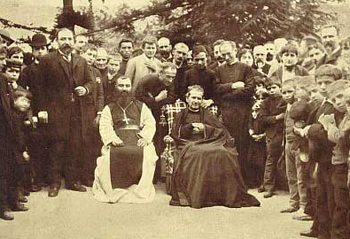 We do not find in him the foolishness common to children. He was a joyful child and had a sound mind, but he did not have the foolishnesses of a child; instead he had a very mature spirit.
This is noticeable in the way he prepared for the novena. He understood well that a novena is a series of days specially consecrated to an ideal. He understood that during those days the ideal was to serve Our Lady and that he should start by purifying his soul by a general confession.
We do not find in him the foolishness common to children. He was a joyful child and had a sound mind, but he did not have the foolishnesses of a child; instead he had a very mature spirit.
This is noticeable in the way he prepared for the novena. He understood well that a novena is a series of days specially consecrated to an ideal. He understood that during those days the ideal was to serve Our Lady and that he should start by purifying his soul by a general confession.
He realized that he should practice the common virtues following the rules of the Oratory, and that he should ask Our Lady something that should be the crown of all of them, which was intransigence toward sin, an intransigence toward sin in all its forms.
He declared death war against mortal sin, and also venial sin, saying that he would rather die than fall into venial sin. Note well, not mortal sin, but venial sin. It is a profound decision that touches upon everything at the same time. He asked Our Lady to take his life rather than allow him to commit a venial sin. It is a serious and virile decision of an already mature spirit; he wanted to practice the rule of behavior he has learned as coming from the hands of God.
Someone could ask: "But is a child like this really a child? Would not a formation that makes a child have a man's spirit be a deformed formation? Does it not deprive the child and the youth of the joy, insouciance and nonchalance that best characterize this age?"
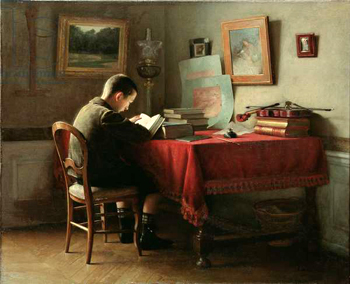 I respond: There is a law of nature that in inherent to all forms of growth and development. This law is that a living being in one stage of its development is always being animated by a vital force that directs all his energies to the next stage.
I respond: There is a law of nature that in inherent to all forms of growth and development. This law is that a living being in one stage of its development is always being animated by a vital force that directs all his energies to the next stage.
A good seed tends to germinate early. When it starts to spring up, it tends to grow with strength and vigor. As soon as it becomes a small tree, it runs through the stages and brings forth flowers and fruits following the growing season.
The tendency to precocity is, therefore, an expression of strength, vitality and health. For this reason a child should not receive a formation to always remain a child as if the ideal of a child is to always be a child. Childhood is a transitory stage and the proper end of the child's formation is to give him a balanced and healthy impulse toward maturity. The precocious child is not what many people think of today: a child who starts to say obscenities at a very early age.
The precocious child is the one who has the wisdom, the understanding and the logic of the next stage of his life. A good formation must stimulate this aim of precocity. Here you see St. Dominic Savio as a monument of precocity resulting from a good formation. Here you see how a Saint – St. John Bosco – formed another Saint – St. Dominic Savio.
You understand that this did not happen by just a natural formation. There is a supernatural factor also present, which is grace. The good educator takes advantage of grace to model his pupil. This is, from the natural and supernatural perspective, the fruit of a good formation.
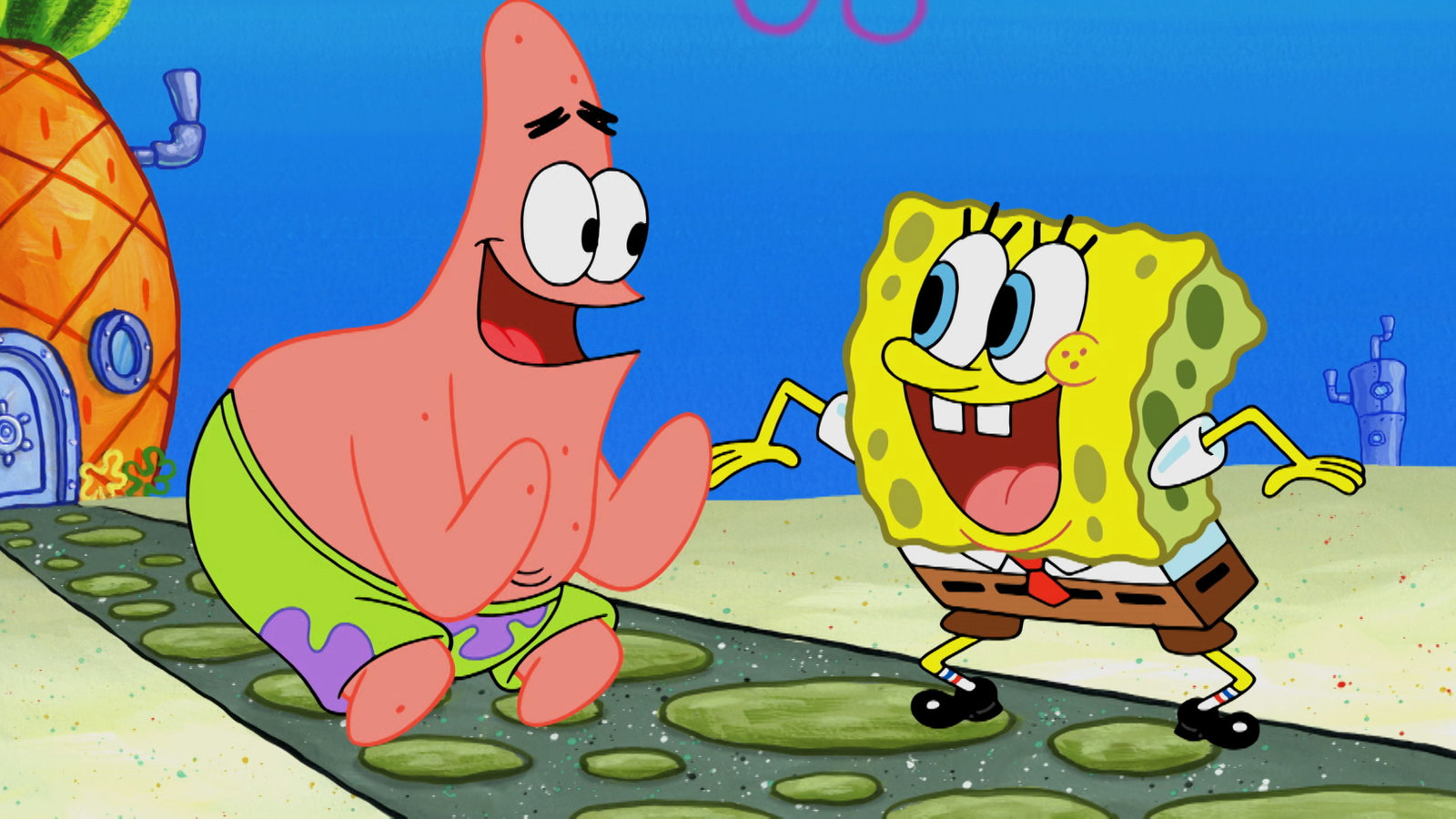 For you who are young, there is a practical application to make from the example of St. Dominic Savio. It is that a young man should aim to reach maturity with a balanced and healthy precocity. You should not allow yourself to be indefinitely insouciant and keep the far niente (do nothing) spirit of youth. On the contrary, you should tend to fructify, produce, work, progress spiritually and mature your spirit as soon as possible. You should not remain lazily in the stage of youth, but should tend toward maturity.
For you who are young, there is a practical application to make from the example of St. Dominic Savio. It is that a young man should aim to reach maturity with a balanced and healthy precocity. You should not allow yourself to be indefinitely insouciant and keep the far niente (do nothing) spirit of youth. On the contrary, you should tend to fructify, produce, work, progress spiritually and mature your spirit as soon as possible. You should not remain lazily in the stage of youth, but should tend toward maturity.
Someone could object: "Your logic is wrong because if this were true the mature man should also aim to reach old age as soon as possible, and the old man should look toward death as soon as possible. Thus, at the end of the escalade you present is nothing but nonsense and contradictions. I do not accept your logic."
I answer: This is not so. The man who formed his spirit has more means than others to resist senility and maintain his lucidity longer. In his mature age he has something that is a type of quintessence of wisdom which he keeps – if he has been mature for a long time – even when the devastations of senility begin to set in. When the reason stumbles and the memory is forgetful, he still gives a wise counsel to make the right decision in a difficult moment, as the elders of the past used to do.
These elders matured much earlier than we do. There were generals who won famous battles at the age of 14, such as Gaston de Foix. There were kings who ascended to the throne at age 13 or 14 and presided over complicated situations in the Council of Ministers.
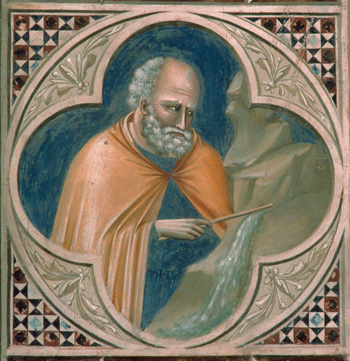 For this reason when these men got old, they could be half-blind, their steps being guided by grandsons, but their families would still come to them to ask advice in difficult moments. Why? Because they had that kind of quintessence of wisdom acquired with maturity and maintained in their old age when life was already ending. They knew how to handle life, for that reason a light, which is the supreme product of life, was lit in their souls waiting for eternity.
For this reason when these men got old, they could be half-blind, their steps being guided by grandsons, but their families would still come to them to ask advice in difficult moments. Why? Because they had that kind of quintessence of wisdom acquired with maturity and maintained in their old age when life was already ending. They knew how to handle life, for that reason a light, which is the supreme product of life, was lit in their souls waiting for eternity.
This is the lucid death of an old man. It is the perfect death that we find in one man who was the perfect model in all ages of his life, a perfect model of precocity: the Patriarch Moses. Scripture tells us that with more than 100 years he could read perfectly – in that time that glasses did not exist – had conserved all his teeth and in his extreme old age died as a youth. Here you see where the love for truth and precocity leads in the Catholic development of a man.
A conclusion drawn from the life of St. Dominic Savio that is useful for all us is the opposite of modern psychology, which forms the child to remain silly or foolish as long as possible, then in his youth to be formed in a moronic way without a desire for maturity. Finally, he ends as a joking buffoon and useless old man. With this formation we build nothing.


The Saint of the Day features highlights from the lives of saints based on comments made by the late Prof. Plinio Corrêa de Oliveira. Following the example of St. John Bosco who used to make similar talks for the boys of his College, each evening it was Prof. Plinio’s custom to make a short commentary on the lives of the next day’s saint in a meeting for youth in order to encourage them in the practice of virtue and love for the Catholic Church. TIA thought that its readers could profit from these valuable commentaries.
The texts of both the biographical data and the comments come from personal notes taken by Atila S. Guimarães from 1964 to 1995. Given the fact that the source is a personal notebook, it is possible that at times the biographic notes transcribed here will not rigorously follow the original text read by Prof. Plinio. The commentaries have also been adapted and translated for TIA’s site.
It is common in youth to often change one's aims and purposes; today a young man practices a virtue eminently and tomorrow he does the exact opposite. From this it can be seen that if that youth does not receive close guidance from a superior, a formation that could have been brilliant and happy ends with very bad results.
This did not happen with our Dominic with regard to the many virtues that burgeoned and grew in him in the different phases of life. They continually increased in a marvelous way, flourishing and growing all together without one impairing another.
His way of living was the common way of observing the regulations of the Oratory [of St. John Bosco]. He dedicated himself eagerly to study, ardently fulfilled all his duties and listened with particular attention to the sermons. He always had present before him that the word of God is the guide for man and the road to Heaven and, therefore, he always remembered the maxims he heard in sermons. In this way, from the common life he quickly passed to an extraordinary life.

Dominic presents his resolution to Our Lady:
death rather than sin
Dominic Savio - "I know that the Virgin grants a great number of graces to those who say her novenas."
John Bosco - "And what do you want to ask in this novena in honor of the Virgin?"
D.S. - "I would like to ask for many things."
J.B. - "What, for example?"
D.S. - "Above all else, I want to make a general confession of my life to have my soul well prepared. Next, I will try to carry out fully the little flowers [good aims] that each day are given in the Good Night [the short talks St. John Bosco used to give every evening to his pupils before they retired to bed]."
J.B. - "Do you have anything else?"
D.S. - "Yes, I want to declare death to mortal sin."
J.B. - "And what else?"
D.S. - "I want to beg strongly, very strongly, from the Most Holy Virgin and the Lord that they send me death rather than let me fall into a venial sin against purity."
Next, he gave me a small paper in which he had written these intentions, and he kept his promises because the Most Holy Virgin helped him. At this time Dominic Savio was 12 years old."
Comments of Prof. Plinio:
Here you see in the structure of a child's soul the distinctive characteristics of St. Dominic Savio: Although only a child, he was an extraordinarily serious, extraordinarily coherent and logical in everything he did.

The Oratory boys with St. John Bosco
He realized that he should practice the common virtues following the rules of the Oratory, and that he should ask Our Lady something that should be the crown of all of them, which was intransigence toward sin, an intransigence toward sin in all its forms.
He declared death war against mortal sin, and also venial sin, saying that he would rather die than fall into venial sin. Note well, not mortal sin, but venial sin. It is a profound decision that touches upon everything at the same time. He asked Our Lady to take his life rather than allow him to commit a venial sin. It is a serious and virile decision of an already mature spirit; he wanted to practice the rule of behavior he has learned as coming from the hands of God.
Someone could ask: "But is a child like this really a child? Would not a formation that makes a child have a man's spirit be a deformed formation? Does it not deprive the child and the youth of the joy, insouciance and nonchalance that best characterize this age?"

A boy studying in a serious environment, moving naturally toward maturity
A good seed tends to germinate early. When it starts to spring up, it tends to grow with strength and vigor. As soon as it becomes a small tree, it runs through the stages and brings forth flowers and fruits following the growing season.
The tendency to precocity is, therefore, an expression of strength, vitality and health. For this reason a child should not receive a formation to always remain a child as if the ideal of a child is to always be a child. Childhood is a transitory stage and the proper end of the child's formation is to give him a balanced and healthy impulse toward maturity. The precocious child is not what many people think of today: a child who starts to say obscenities at a very early age.
The precocious child is the one who has the wisdom, the understanding and the logic of the next stage of his life. A good formation must stimulate this aim of precocity. Here you see St. Dominic Savio as a monument of precocity resulting from a good formation. Here you see how a Saint – St. John Bosco – formed another Saint – St. Dominic Savio.
You understand that this did not happen by just a natural formation. There is a supernatural factor also present, which is grace. The good educator takes advantage of grace to model his pupil. This is, from the natural and supernatural perspective, the fruit of a good formation.

Modern youth are influenced by the vulgarity of cartoons & mimic their foolishness
Someone could object: "Your logic is wrong because if this were true the mature man should also aim to reach old age as soon as possible, and the old man should look toward death as soon as possible. Thus, at the end of the escalade you present is nothing but nonsense and contradictions. I do not accept your logic."
I answer: This is not so. The man who formed his spirit has more means than others to resist senility and maintain his lucidity longer. In his mature age he has something that is a type of quintessence of wisdom which he keeps – if he has been mature for a long time – even when the devastations of senility begin to set in. When the reason stumbles and the memory is forgetful, he still gives a wise counsel to make the right decision in a difficult moment, as the elders of the past used to do.
These elders matured much earlier than we do. There were generals who won famous battles at the age of 14, such as Gaston de Foix. There were kings who ascended to the throne at age 13 or 14 and presided over complicated situations in the Council of Ministers.

Moses was the model for man in all ages of his life
This is the lucid death of an old man. It is the perfect death that we find in one man who was the perfect model in all ages of his life, a perfect model of precocity: the Patriarch Moses. Scripture tells us that with more than 100 years he could read perfectly – in that time that glasses did not exist – had conserved all his teeth and in his extreme old age died as a youth. Here you see where the love for truth and precocity leads in the Catholic development of a man.
A conclusion drawn from the life of St. Dominic Savio that is useful for all us is the opposite of modern psychology, which forms the child to remain silly or foolish as long as possible, then in his youth to be formed in a moronic way without a desire for maturity. Finally, he ends as a joking buffoon and useless old man. With this formation we build nothing.

 | |
|
|
The texts of both the biographical data and the comments come from personal notes taken by Atila S. Guimarães from 1964 to 1995. Given the fact that the source is a personal notebook, it is possible that at times the biographic notes transcribed here will not rigorously follow the original text read by Prof. Plinio. The commentaries have also been adapted and translated for TIA’s site.


